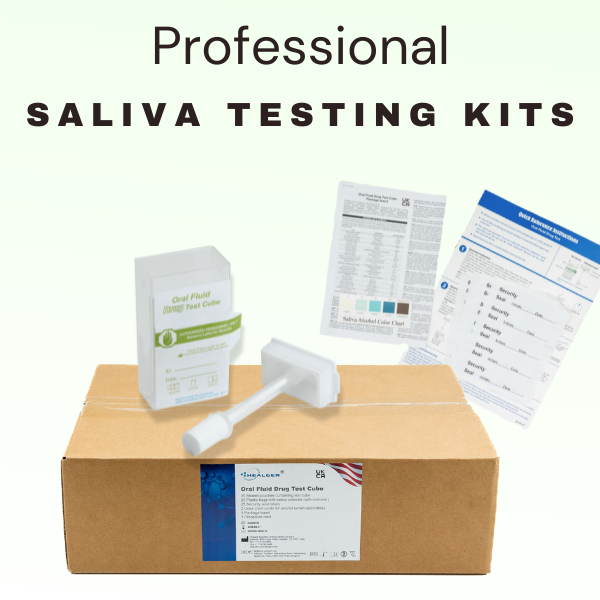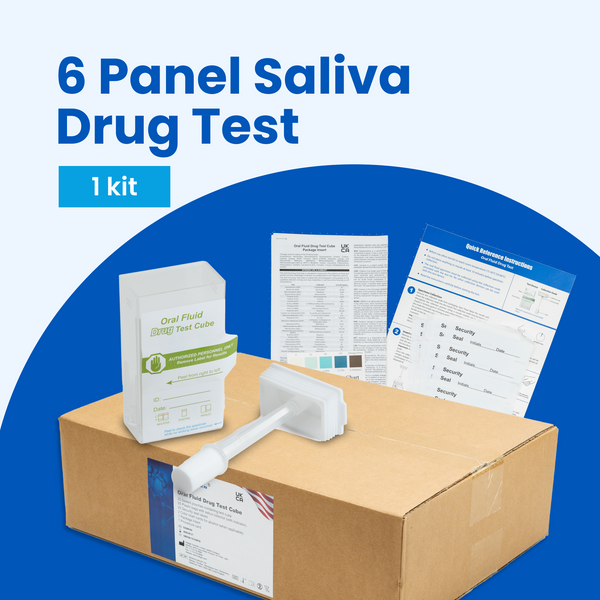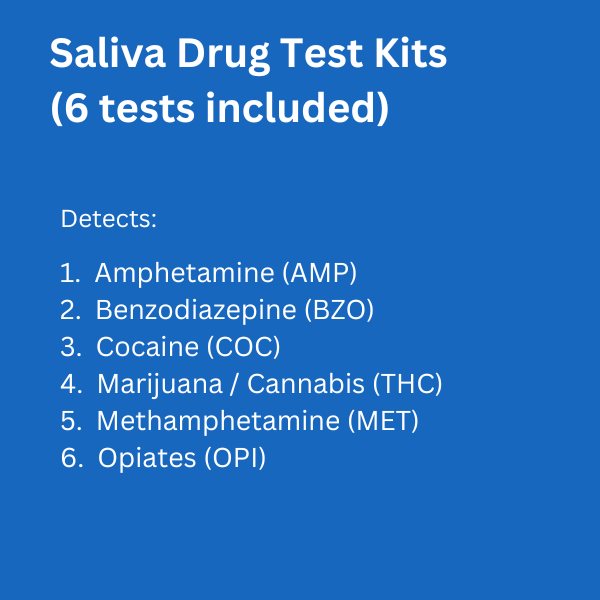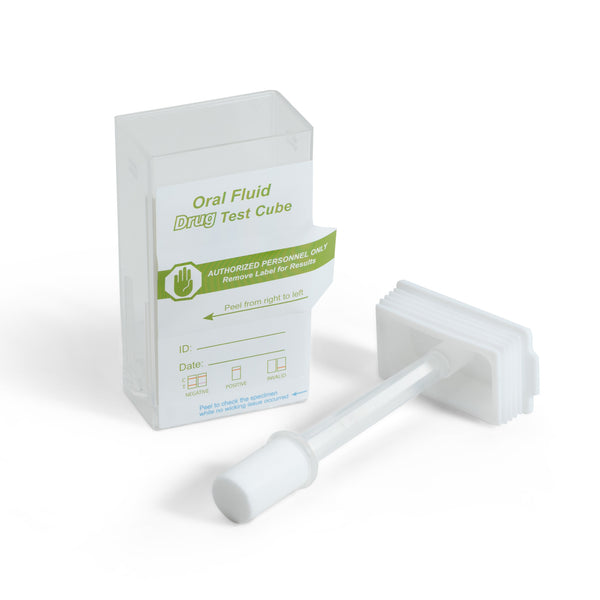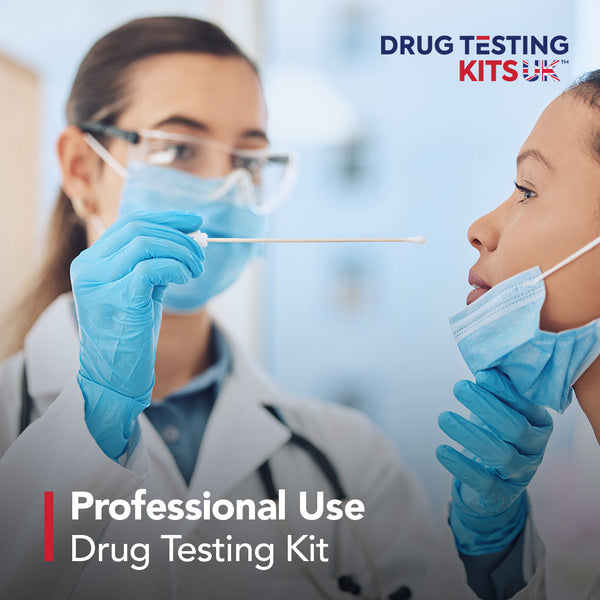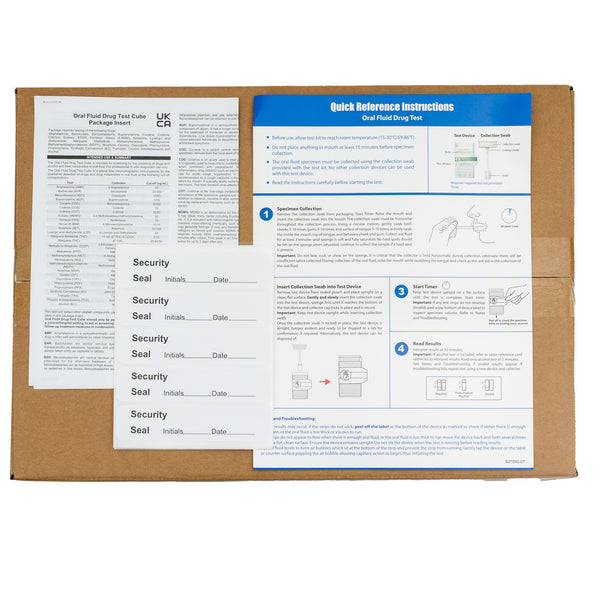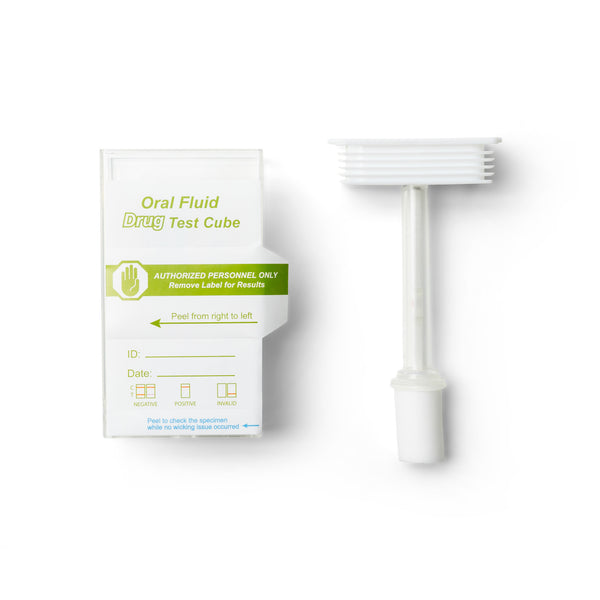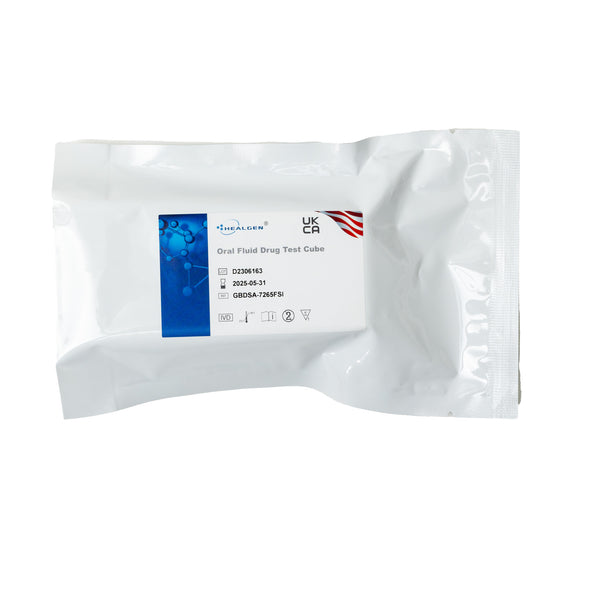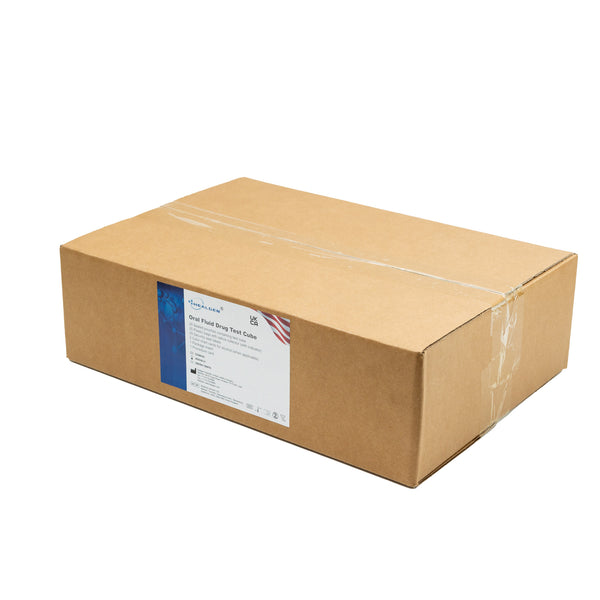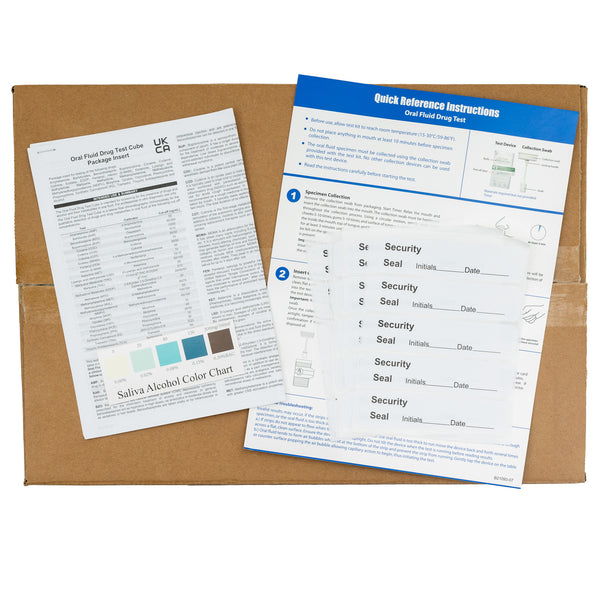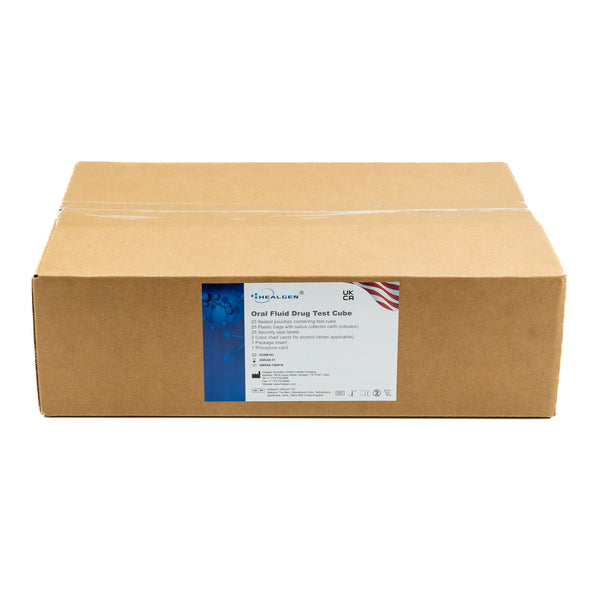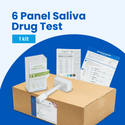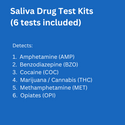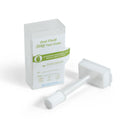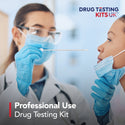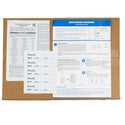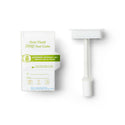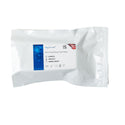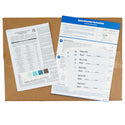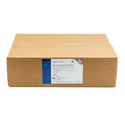Our team of experts at Drug Testing Kits UK has carefully researched and fact-checked the information on blood alcohol limits in the UK. With extensive experience and strong industry relationships established since our founding in 2016, we ensure you receive clear, accurate, and reliable information. As part of Hillside Commerce Ltd, we are committed to providing the highest quality service and trustworthy guidance for informed decision-making.
Driving under the influence of alcohol is a serious offence with significant legal and safety implications. This guide will give you all the information to understand blood alcohol limits across the UK, penalties for exceeding them and everything you need to know about blood alcohol tests.
What are the Blood Alcohol Limits in the UK Regions?
The legal Blood Alcohol Concentration (BAC) limits differ between England, Wales & Northern Ireland, and Scotland. Here's a table outlining the limits for each region, including urine tests:
| Measurement Type | England, Wales & Northern Ireland | Scotland |
|---|---|---|
| Breath Alcohol Content (BAC) Limit | 35 micrograms per 100 milliliters | 22 micrograms per 100 millilitres |
| Blood Alcohol Concentration (BAC) Limit | 80 milligrams per 100 millilitres | 50 milligrams per 100 millilitres |
| Urine Alcohol Content (UAC) Limit (Rarely Used) | 107 milligrams per 100 millilitres | 67 milligrams per 100 millilitres |
Source: https://www.gov.uk/drink-drive-limit
IMPORTANT: The Blood Alcohol Concentration (BAC) limits listed in the table are not just guidelines – they're the law. Exceeding these limits is considered a criminal offence known as Driving Under the Influence (DUI).
What are the Penalties for Exceeding Blood Alcohol Limits?
Driving under the influence of alcohol (DUI) is a serious offence in the UK, and exceeding the legal Blood Alcohol Concentration (BAC) limits comes with hefty consequences. Here's what you need to know, as outlined by the UK government.
Fines
These can vary significantly depending on the severity of the offence. A first-time offender might face a fine of several hundred pounds, while repeat offenders or those involved in accidents could face much harsher penalties, potentially reaching thousands of pounds.
Licence Disqualification
A driving ban is a very likely consequence of DUI. For a first offence, the disqualification period could be a minimum of 12 months. Repeat offenders or those causing accidents could face even longer bans, potentially extending to several years. In severe cases, driving licences may even be revoked entirely.
Imprisonment
In the most serious cases, especially those involving accidents or injuries, you could face jail time. This is more likely for repeat offenders or those whose actions endanger others.
It's important to remember that these are just the minimum penalties. The actual consequences you face will depend on the specific circumstances of your offence.
There are some additional factors that can influence the severity of penalties:
- Your BAC level: The higher your BAC level, the harsher the penalties will likely be.
- Previous offences: Repeat offenders will face stricter penalties.
- Whether an accident occurred: If your DUI resulted in an accident, especially one involving injuries or fatalities, the penalties will be significantly more severe.
Your cooperation with law enforcement: Cooperating with the police during a DUI stop can sometimes result in slightly less harsh penalties.
Beyond the legal consequences:
A drink-driving conviction can have a significant ripple effect on your life, as noted by the UK government website:
- Increased car insurance costs: Your car insurance premiums will likely skyrocket following a DUI conviction.
- Employment implications: If you drive for a living, a drunk driving conviction on your record could jeopardise your job.
- Travel restrictions: Certain countries, like the USA, may impose restrictions on individuals with DUI convictions.
The takeaway? Don't drink and drive. The risks are simply not worth it. Even if you avoid legal consequences, the potential for accidents and endangering yourself and others is far too high.
How are Blood Alcohol Levels Tested?
Law enforcement officers have various methods to determine your Blood Alcohol Concentration (BAC) if they suspect you've been drinking and driving. Here's a breakdown of the most common blood alcohol tests in the UK:
Breathalyzers
Breathalyzers are used for roadside checks. They provide a quick estimate of your BAC by measuring the amount of alcohol present in your breath. While convenient, breathalyzers may not always be as accurate as other methods.
Blood Tests
A medical professional takes blood samples and sends them to a laboratory for analysis. This method provides the most precise BAC measurement and is often used as evidence in court.
Urine Tests (Less Common)
Urine tests can also detect alcohol consumption, but they are less commonly used for roadside checks due to practical limitations. Urine tests may not be used for legal purposes because they don't necessarily reflect current BAC levels, as the body processes alcohol differently through urine compared to breath or blood.
Who is Testing Blood Alcohol Limits?
In the UK, enforcement of blood alcohol limits falls under the jurisdiction of law enforcement agencies. Here's a breakdown:
- England, Wales, and Northern Ireland: Police forces in these regions are responsible for conducting roadside checks and administering breathalyzer tests. If a driver exceeds the legal limit or shows signs of impairment, a blood test may be requested at a police station.
- Scotland: Similar to other regions, Police Scotland conducts roadside alcohol checks and breathalyzer tests. However, the legal limit in Scotland is lower than the rest of the UK.
How Long Does Alcohol Stay in Your System
While the legal limits for driving under the influence (DUI) are set blood alcohol concentration (BAC), breathalyzer tests, and urine tests, the time it takes for alcohol to leave your system completely can vary depending on several factors. Here's a breakdown of detection windows for different tests:
How Long Does Alcohol Stay in Your System
| Test Type | Detection Window |
|---|---|
| Breath | 12-24 hours |
| Blood | Up to 12 hours |
| Urine | 10-12 hours |
Source: https://www.verywellmind.com/how-long-does-alcohol-stay-in-your-system-80218 rel="nofollow"
Important to Consider:
- These are estimated windows and can be influenced by many factors.
- Hair follicle tests can detect alcohol for up to 90 days but aren't commonly used for DUI enforcement due to the extended detection window compared to impairment.
What Factors Affect the Blood Alcohol Levels in the Body?

Understanding how your body processes alcohol is crucial. Several factors can influence how quickly your BAC rises and how long it takes for your body to eliminate the alcohol. Here's a breakdown of some key factors:
- Gender: Men generally process alcohol faster than women due to differences in body composition and enzyme activity. This means women typically reach a higher BAC level from the same amount of alcohol compared to men.
- Weight: People with a higher body mass tend to have a lower BAC level after consuming the same amount of alcohol compared to someone with less body mass. This is because alcohol is distributed throughout body fluids, and a larger body has more fluids to dilute the alcohol.
- Food Consumption: Having food in your stomach slows down the absorption of alcohol into your bloodstream. Eating a meal before or while drinking can significantly impact how quickly your BAC rises.
- Metabolism: Individual variations in metabolism play a role. People with a faster metabolism process alcohol more efficiently, resulting in a lower peak BAC compared to someone with a slower metabolism.
Medications: Certain medications can interact with alcohol and increase its effects. Always check with your doctor or pharmacist before consuming alcohol if you're taking any medications.
What to Do if the Results are False Positive?
While rare, false positives can occur on any type of alcohol test. Here's what you should know:
Blood Tests
These are the most reliable but can be impacted by medications or medical conditions causing the body to produce ketones that mimic alcohol.
Breath Tests
Mouthwash, cough syrups, or recent ingestion of fermented foods can lead to a false positive.
Urine Tests
Like breath tests, certain medications, mouthwash use, or food intake can cause a false positive.
If you believe your test result is inaccurate:
- Request a retest: You can request a second test, preferably of a different type (e.g., blood if you received a breath test).
- Disclose medications and recent food intake: Informing the testing officer about any medications, mouthwash use, or specific foods you've consumed can help explain a potential false positive.
Seek legal advice: A solicitor specialising in motoring offences can advise you on the best course of action if you believe your positive result is incorrect.
What to Do to Avoid Blood Alcohol Limits?
The safest approach is to always prioritise a sober driver behind the wheel. Here are some strategies to ensure you never have to worry about exceeding the limits:
- Plan ahead: If you know you'll be drinking, designate a sober driver or arrange alternative transportation (taxi, ride-sharing service, public transport).
- Be mindful of consumption: Even small amounts of alcohol can affect your driving ability. If you do choose to drink, pace yourself and have plenty of non-alcoholic drinks throughout the evening.
- Food is your friend: Eating a meal before or while drinking slows down alcohol absorption into your bloodstream.
- Know your limits: While there's no guaranteed "safe" amount for everyone, understanding how your body typically reacts to alcohol can help you make informed choices.
Remember: The only way to be 100% certain you're under the limit is to not drink and drive at all.



 03333 704 704
03333 704 704


